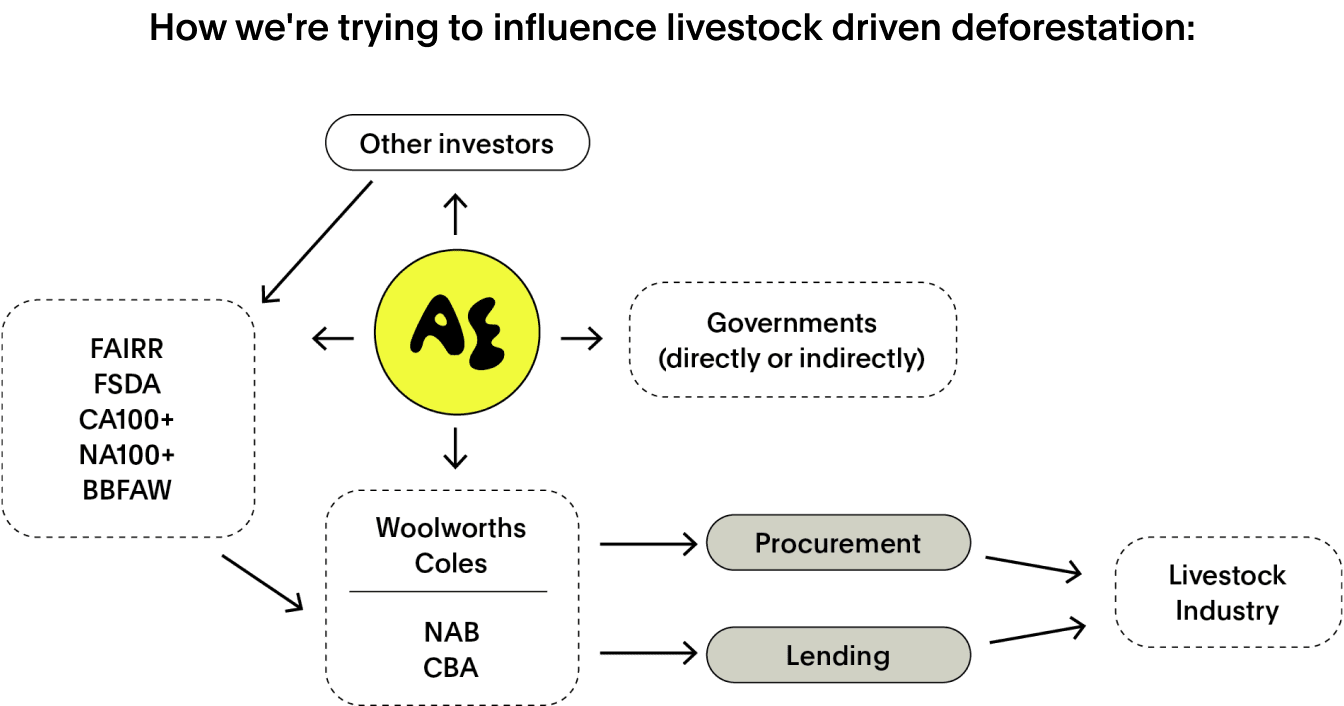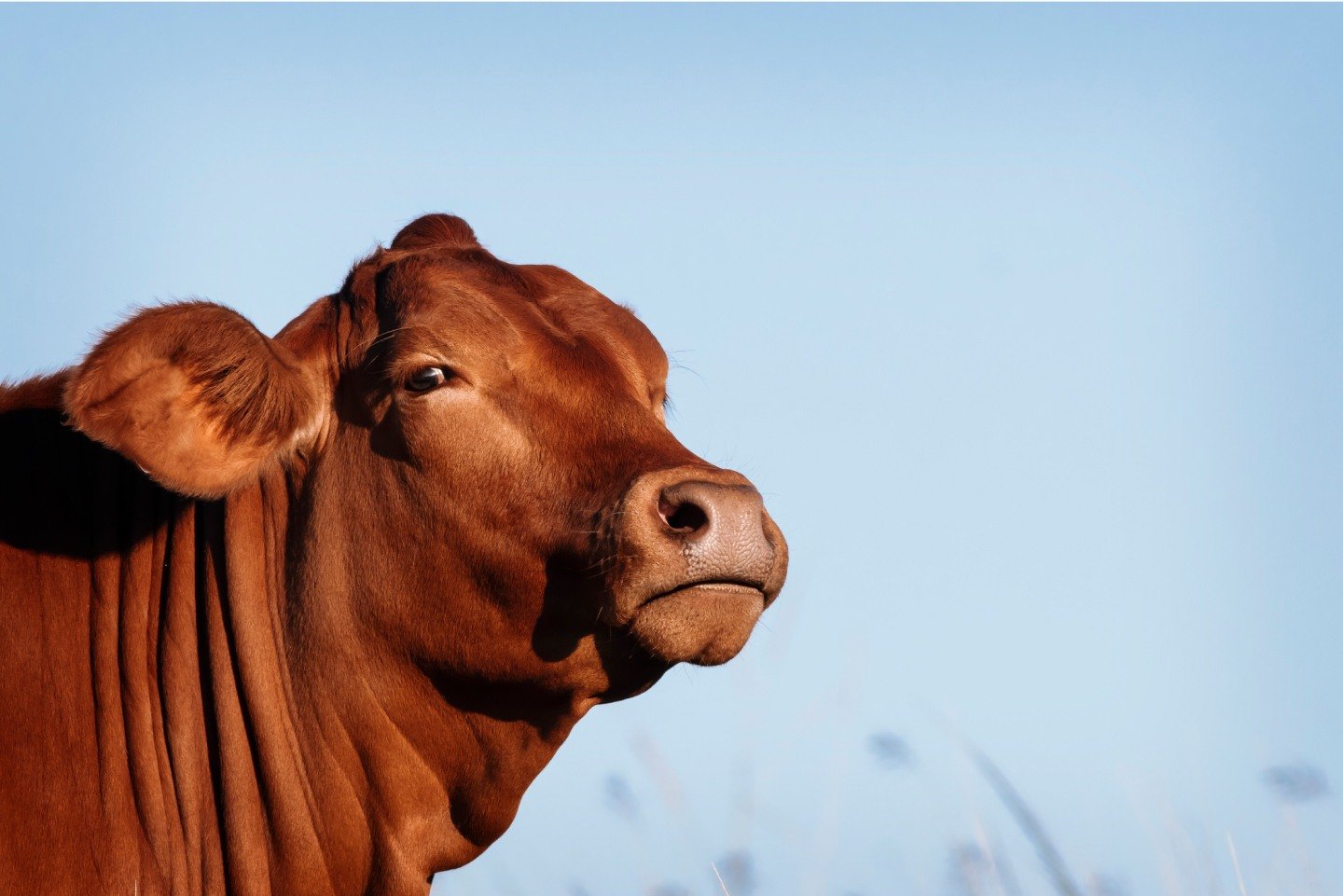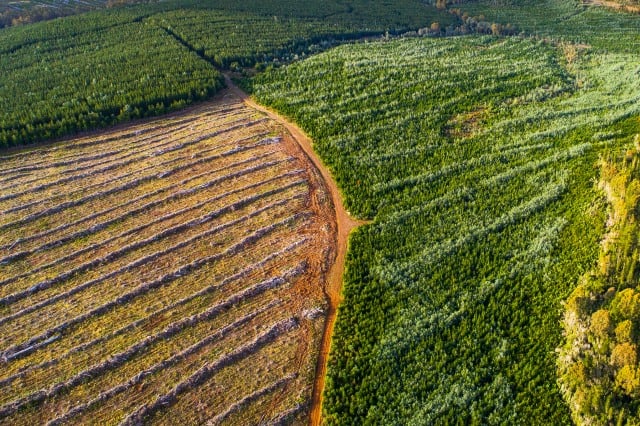How to: Take action against livestock deforestation
The East Coast of Australia has been listed among the top 24 deforestation fronts in the world1, right alongside the likes of Amazon, Sumatra and Borneo.
This problem doesn’t often reach the major daily mastheads, but estimates suggest2 the current rate of deforestation in the East Coast of Australia equates to a large football field-sized area of forest and bushland every two minutes.
The main reason for the clearing of forests and bushland in Australia is to make way for cattle pastures to support the consumption and export of beef.
We think it’s important to weigh up the costs of a lifestyle choice or economic model that appears to be unsustainable.
If how we are living our lives is destroying natural habitats, which in turn had resulted in Australia ranking number one in the world for mammal extinction, shouldn’t we at least question why we continue to do it – or at least look for alternatives?
A couple of the ways Australian Ethical is working to stop livestock driven deforestation is by putting pressure on supermarket chains to commit to deforestation free beef products, and banks to commit to deforestation free agricultural lending.
These efforts can take time to result in progress, so we were very pleased when Woolworths announced its plans in August to stop sourcing beef linked to deforestation from 2025. We can’t claim full credit for this decision by Woolworths because it’s a result of the concerted efforts of many investors and Non-Government Organisations. But it’s a big deal, and something we plan to use as an example to encourage others to follow.

How you can make a difference
While putting pressure on companies that lend to and purchase products from not-so-sustainable cattle producers is an essential leverage point for slowing livestock-driven deforestation, consumers have an equally crucial role to play.
It’s important that the broader population understands and responds to the impact of their diets, and that retailers put forward alternative products to reduce the demand for beef, and slow the rate of deforestation.
Reduce beef consumption by making small swaps in your life.
Consider ways to swap meat for healthy plant-based alternatives like legumes, tofu or tempeh. Try doing #MeatFreeMonday or choosing the plant-based option on the menu at a restaurant. Choosing to reduce your beef intake and increase your plant intake has benefits for animals, the environment and your health1,2.
Talk to your friends and family about what you’re eating and how they can potentially reduce animal products within their diet as well.
Stopping livestock-driven deforestation is a strategic stewardship pillar of ours, and there’s plenty of work left to do, including pushing supermarket chain Coles to stop stocking beef products linked to deforestation.

If you're shopping at a smaller retailer, ask whether they know where their beef is sourced from and whether they have considered food sustainability.
Both Woolworths and ALDI have committed to not stock beef linked to deforestation by the end of 2025, so beef currently sold there might not yet be deforestation free. If you do your shopping at one of the big grocery chains, try to shop for more plant-based products.
If you’re shopping at a smaller retailer, ask whether they know where their beef is sourced and whether they have considered food sustainability. Same with restaurants and your local café – test their knowledge of where they source their red meat from. Starting a conversation from a place of curiosity could be just the catalyst for a restaurant or café owner to talk to their suppliers with food sustainability in mind.
If you’re shopping at a smaller retailer, ask whether they know where their beef is sourced and whether they have considered food sustainability in their product offering.
Same with restaurants and your local café – test their knowledge of where they source their meat from, and what sustainable alternatives they provide. Starting a conversation from a place of curiosity could be just the catalyst for a restaurant or café owner to talk to their suppliers with food sustainability in mind, and consider offering more alternatives.
Avoid fast food. Fast food companies create a lot of demand for beef through convenient, affordably priced and widely marketed products, which keeps the pressure on primary producers to keep the supply coming. McDonald’s alone reported in 2022 that 64 million kilograms of Australian beef was purchased3 its restaurants.
Check out Greenpeace’s Deforestation Scorecard which shows how Australia’s top 10 Beef suppliers stack up against a deforestation-free target.
You can encourage these companies to commit to deforestation free beef supply chains. Greenpeace has put together a handy template email you can send to the CEOs of major beef buyers asking them to ensure their supply chains are deforestation-free by 2025.
You can also look out for ways to encourage policy makers to step up and commit to strong laws that protect and restore nature, including laws that address the deforestation crises in Australia.
The Australian Conservation Foundation has a petition to the Australian Government for stronger laws protecting the destruction of nature, including forests, wetlands, reefs and wildlife, which our nature laws don’t currently address.
Stopping livestock-driven deforestation is a strategic stewardship pillar of ours, and there’s plenty of work left to do, including pushing supermarket chain Coles to stop stocking beef products linked to deforestation.

If you're shopping at a smaller retailer, ask whether they know where their beef is sourced and whether they have considered food sustainability.
Both Woolworths and ALDI have committed to not stock beef linked to deforestation by the end of 2025, so beef currently sold there might not yet be deforestation free. If you do your shopping at one of the big grocery chains, try to shop for more plant-based products.
If you’re shopping at a smaller retailer, ask whether they know where their beef is sourced and whether they have considered food sustainability. Same with restaurants and your local café – test their knowledge of where they source their red meat from. Starting a conversation from a place of curiosity could be just the catalyst for a restaurant or café owner to talk to their suppliers with food sustainability in mind.
If you’re shopping at a smaller retailer, ask whether they know where their beef is sourced and whether they have considered food sustainability in their product offering.
Same with restaurants and your local café – test their knowledge of where they source their meat from, and what sustainable alternatives they provide. Starting a conversation from a place of curiosity could be just the catalyst for a restaurant or café owner to talk to their suppliers with food sustainability in mind, and consider offering more alternatives.
Avoid fast food. Fast food companies create a lot of demand for beef through convenient, affordably priced and widely marketed products, which keeps the pressure on primary producers to keep the supply coming. McDonald’s alone reported in 2022 that 64 million kilograms of Australian beef was purchased3 its restaurants.
Check out Greenpeace’s Deforestation Scorecard which shows how Australia’s top 10 Beef suppliers stack up against a deforestation-free target.
You can encourage these companies to commit to deforestation free beef supply chains. Greenpeace has put together a handy template email you can send to the CEOs of major beef buyers asking them to ensure their supply chains are deforestation-free by 2025.
You can also look out for ways to encourage policy makers to step up and commit to strong laws that protect and restore nature, including laws that address the deforestation crises in Australia.
The Australian Conservation Foundation has a petition to the Australian Government for stronger laws protecting the destruction of nature, including forests, wetlands, reefs and wildlife, which our nature laws don’t currently address.
1 deforestation_fronts___drivers_and_responses_in_a_changing_world___full_report_1.pdf (panda.org)
2 Report: Deforestation Crisis on Their Watch - Greenpeace Australia Pacific
3 https://ourworldindata.org/less-meat-or-sustainable-mea
4 Food in the Anthropocene: the EAT–Lancet Commission on healthy diets from sustainable food systems. Willett W, et al. (2019). The Lancet. 393 (10170): 447 – 492.




